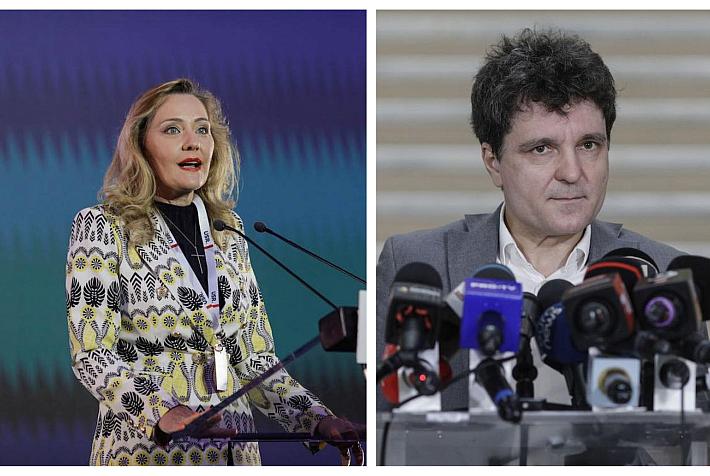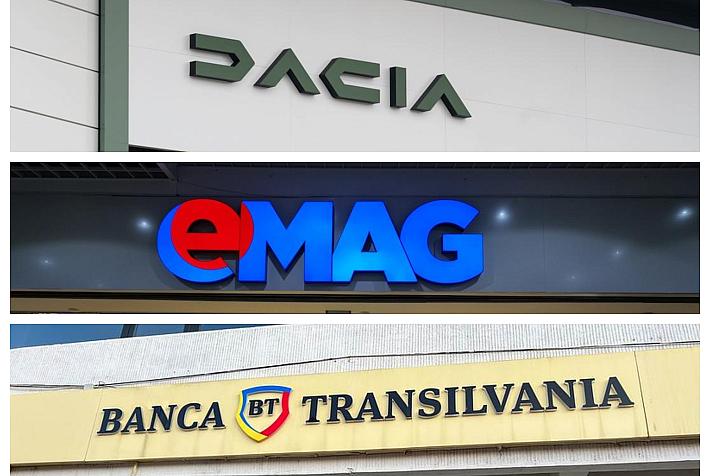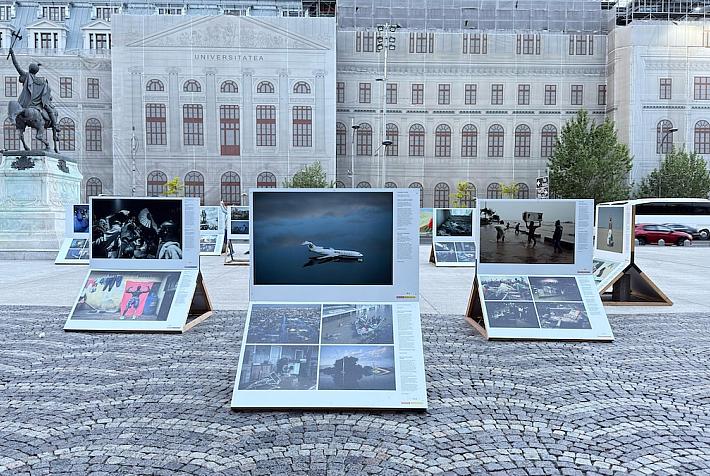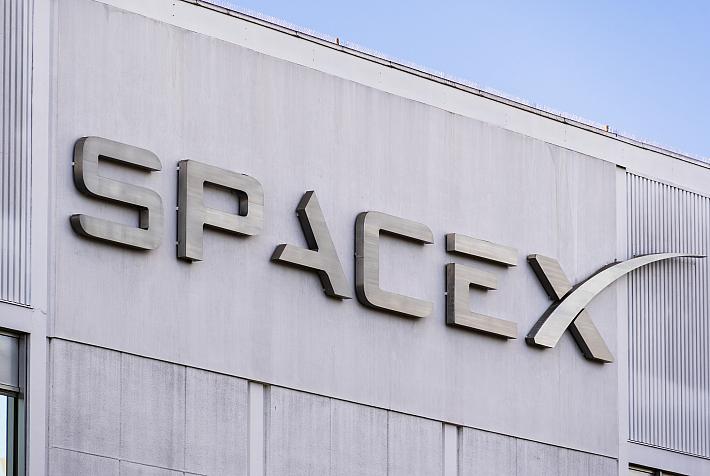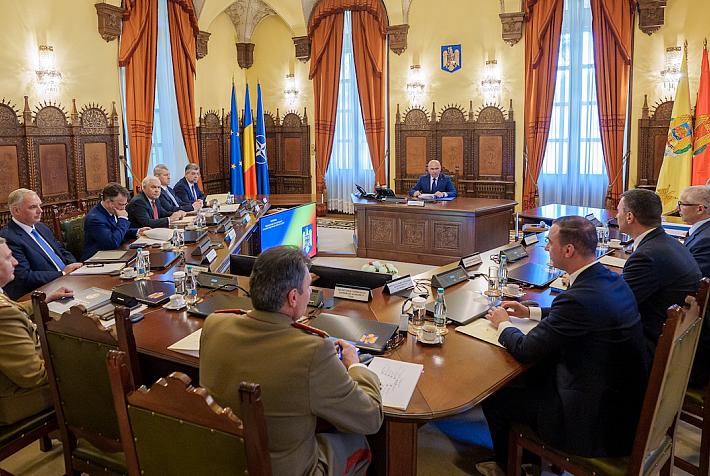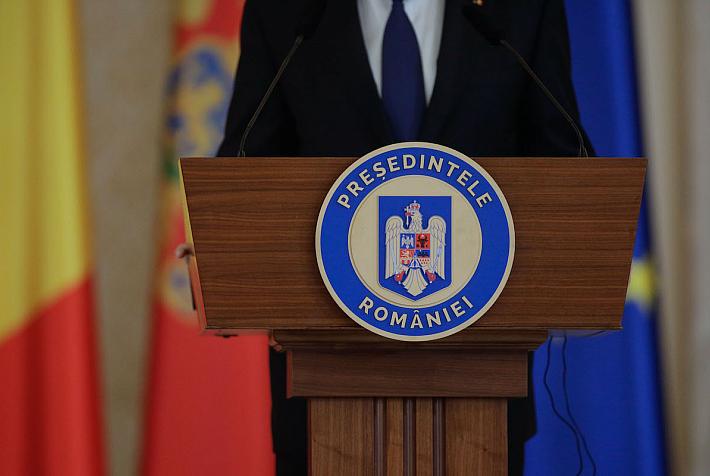Comment: Russia - the partner Romania could have had

Watching events unfolding in Moscow since the political and economic crisis of 1993, I have often wondered how it would feel to write a positive piece celebrating the development of a Russia that was entirely different from the sinister and tragic country we see now. A Russia that used its great resources and pool of human talent to develop in a positive way and to become a valued friend to its neighbors in the region. A Russia that we would be happy to call an important and mutually supportive ally and trading partner for Romania.
It is just possible to imagine the establishment of a national liberal government following a brief period in which Boris Yeltsin stabilized the political situation and resisted western capital’s initial greedy and destructive surge, without going over to the dark side and abandoning the rule of law. In this scenario Mr. Yelstin did not sell Russia out through the deals he made with the oligarchs that led the country’s economy and its society to where it sits now. Imagine Mr. Yelstin defeating the Siloviki rather than bringing them to power.
Perhaps it is also possible to conceive of a young and inspiring democracy finally letting go of its violent absolutist past, a past that must include the Soviet Communist Party as much as the Tsars, and allowing the enormously creative potential of its people to flourish. This new Russia uses all of its economic potential to build a modern economy that provides genuine growth and opportunity for the whole population. The kind of modern economic growth that funds better education and health care at every level, that rejuvenates the country’s collapsing infrastructure and saves the many millions of people living beyond Moscow and St Petersburg from utterly hopeless poverty. The kind of modern economic growth that reverses Russia’s catastrophic demographic trends and offers new products and services to the world in return for free-flowing inward investment and high levels of employment.
Following this trajectory we can realistically construct and present a different Russian profile to the world, one that uses its powerful position in the energy sector to forge new and positive commercial relationships with its neighbors across Europe and with the rest of the world. A Russia that joins Romania in developing the riches of the Black Sea and in jointly leading other countries quickly away from the traumatic post-communist period. A Russia that takes responsibility for forging an environment of co-operative energy security in the regions of the Far East and the Arctic.
We could eagerly support a Russia that campaigns on behalf of safe energy at stable prices and helps the world recover from the financial crisis once and for all. A country that offers real insight, through experience, on how to deal with fundamentalist terrorism. One that plays a full and energizing role in a tired international community that seems increasingly to have lost its way.
Russia could have been a major player in the globalized world economy rather than the pariah it has become, leading to the unprecedented and destructive levels of capital flight that it has suffered over the past 18 months.
Russia could have been the phoenix that rose from the ashes of political and economic collapse to offer the world, once more, the full range of its culture. Are we to believe that the rich seam of Russian music, literature, cinema and fine art has really been exhausted? Are movies like ‘Leviathan’, another reprise of the extraordinary ‘Repentance’ (Tengiz Abuladze, 1984), all that we can expect these days?
However, none of the good things that we can dare to imagine actually happened and nor will they. Instead of taking a path towards the light, Russia turned into a country where only a very few can enjoy the benefits of her economic assets. A country where the fundamental absence of the rule of law deliberately prevents most of her people from enjoying increased wealth in a peaceful and progressive economic and political environment. A country where business and political disputes are resolved by denunciation, political prison, guns, knives and poison.
Russia is a country where the ruling elite are so afraid of losing what they took and continue to take, that they murder any and all credible opposition to their regime and deny the rest of the population both real information and a free voice. Russia is a country where international relations are conducted not through mutually beneficial trade and commerce, diplomacy and joint progress but through the media of naked intimidation, threats and violence.
Russia’s global brand today sits as low and as worthless as her currency. The population and their leaders are represented by the news of troops massing on borders, by the image of a full body bag lying on a Moscow bridge at night. We see only gangs of drunken young men dressed in combat fatigues and black balaclavas, waving Kalashnikov assault rifles in the air as they charge across derelict urban, post-apocalyptic, landscapes. Russia is a field covered in the smouldering remains of a shot-down civilian airliner. Is that really how the people of Russia want the rest of the world to see them?
Russia today is an economic and social ruin, a country of around one hundred and fifty million people with an economy smaller than that of Italy. All the trends are downward, and she is an increasingly easy target for her enemies and competitors around the world. This situation is neither acceptable nor sustainable for Russia or the rest of the world.
It could all have been so different but, unfortunately, Romania will have to move on and grow without the partner a modern and successful Russia could have been.
By Ronnie Smith, guest writer






